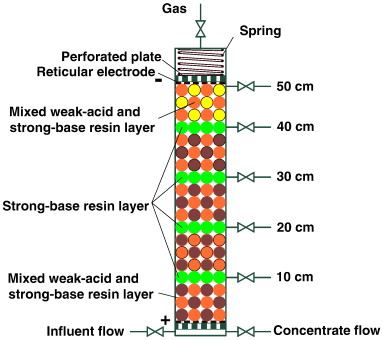
Researchers at Zhejiang University in China have previously successfully tested a new method for high-purity water production, called membrane-free electrodeionisation (MFEDI).
In this electrically regenerated ion-exchange process, the mixed cation and anion resins are packed between a pair of reticular electrodes. However, to prevent the constant backward migration of cationic or anionic ions, achieve equally effective regeneration for both cationic and anionic resins, and obtain neutral concentrate, the electrodes had to be reversed during regeneration.
This not only complicates the regeneration process, but also reduces water recovery and electrode lifetime.
In this new work, the researchers have improved the resin layer structure, and investigated the regeneration performance of MFEDI without electrode polarity reversal.
A total of 30 operational cycles were examined, and confirmed that effective regeneration was achieved. The effluent conductivity was only 0.055–0.060 μS/cm; the average pH value of the concentrate was 7.2; the water recovery was 90%; and the energy consumption was 0.71 kWh/m3 of water.




